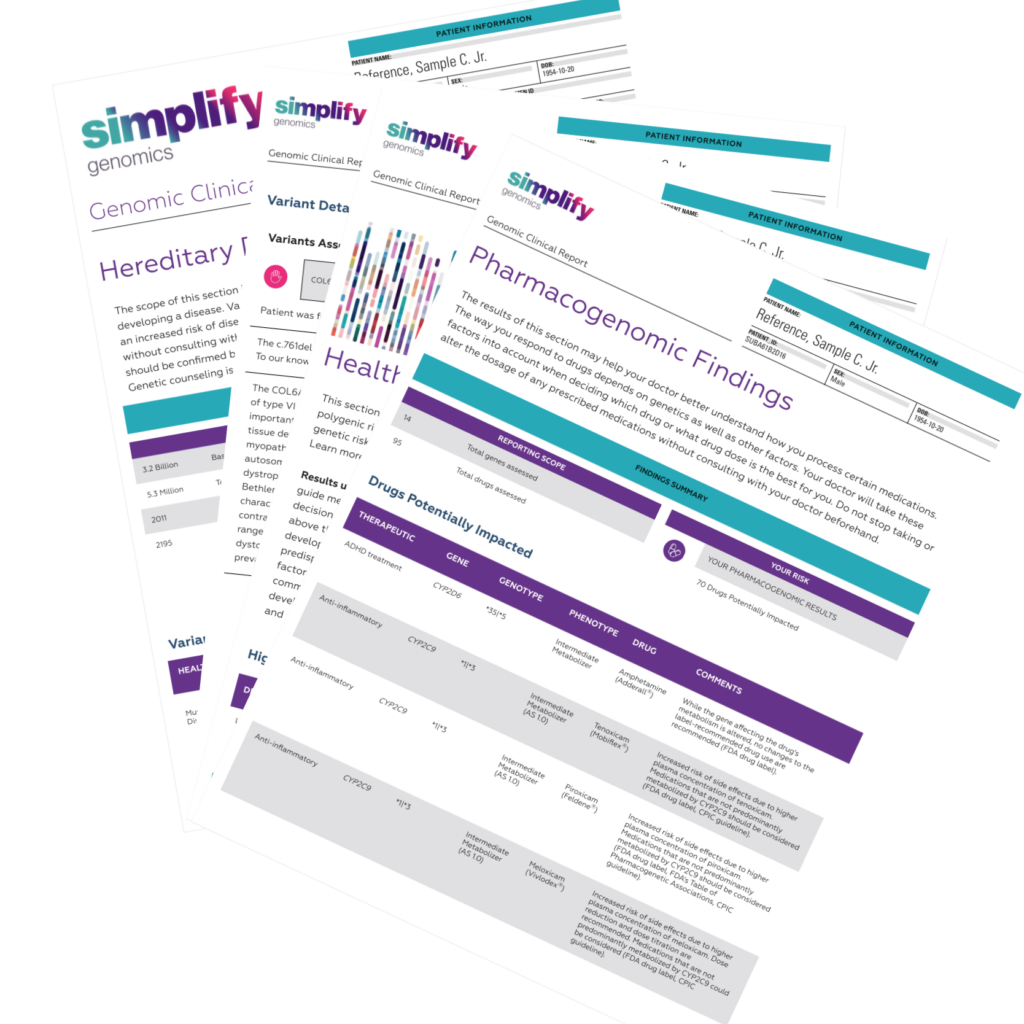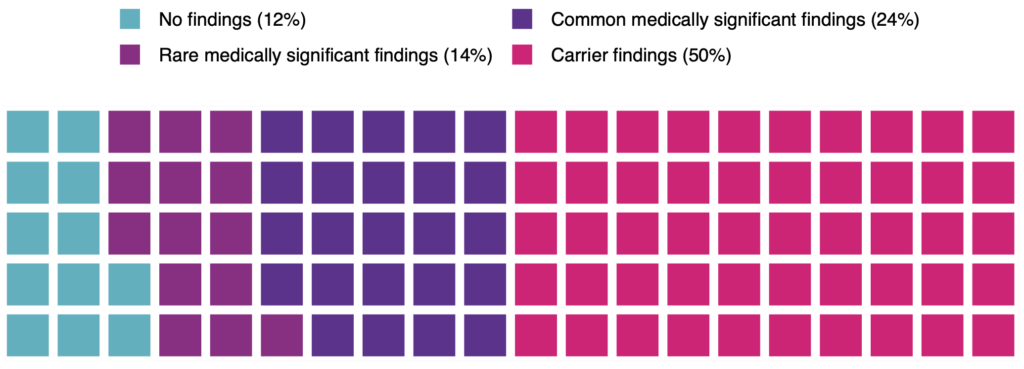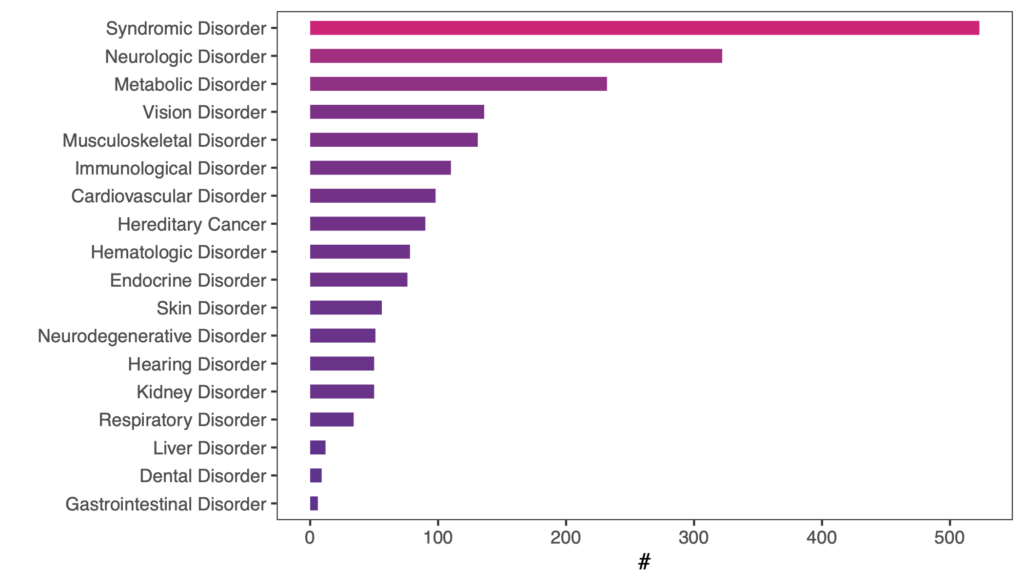Precision Medicine with Smart GenomeTM

Empowering genomic-centered medicine
Simplify Genomics’ clinical reporting solutions provide clinicians and physicians with a CLIA-certified and CAP-accredited clinical report to guide patient care.
- 2100+ well-established gene-disease associations for Hereditary Risk
- A pharmacogenomics section that covers 94% of the top 50 prescribed drugs* that have a recommendation to use genetics information when prescribed**
- Polygenic Risk assessment for 30+ common diseases
- Nutritional and Wellness Traits
- CLIA-certified and CAP-accredited wet and dry laboratories issuing clinical Whole Genome Reports since 2018
Hereditary Disease Findings
- 14% of patients have rare* medically significant findings**
- 24% of patients have common* medically significant findings**
- 74% of patients have carrier findings
*Rare variant findings exclude frequently observed disease-causing variants for common disorders (Alzheimer’s Disease, Hemochromatosis, Factor 5 Deficiency, and others). These are included in clinical reports but are excluded for the purposes of counting the percentage of rare medically significant findings above.
**Medically significant is any heterozygous disease-causing variant in a gene with dominant inheritance, or a homozygous disease-causing variant in a gene with recessive inheritance.


Pharmacogenomics Findings
- 18-34% of patients have non-normal findings for pharmacogenomics genes CYP2C9, CYP2D6 and SLCO1B1.
- Patients with non-normal findings for CYP2C9 have reduced function which can result in an increased risk of side-effects for anti-inflammatories, and an increased risk of myopathy for some statins.
- Non-normal findings for CYP2D6 include both increased and decreased function. Patients with reduced function have an increased risk of side effects from beta blockers and anti-depressants, whereas patients with increased function are at risk of reduced efficacy for these drug classes, but at increased risk of toxicity for opiates.
- Patients with non-normal findings for SLCO1B1 have reduced function and are at increased risk of myopathy for statins.
- The full list of reportable pharmacogenomics genes is available in our latest Genomic Clinical Gene List.
Reportable Scope
- The reportable scope currently includes more than 2000 genes for more than 2100 well-established gene-disease associations.
- The number of genes included for each disease category are shown in the adjacent figure.
- Note that some genes are associated with multiple disease categories, but are only counted for the primary category. For example, the GBA gene has a primary association with a Metabolic Disorder Gaucher’s disease, but a secondary association with Hereditary Cancer.
- The full list of genes and disease associations are available in our latest Genomic Clinical Gene List.
